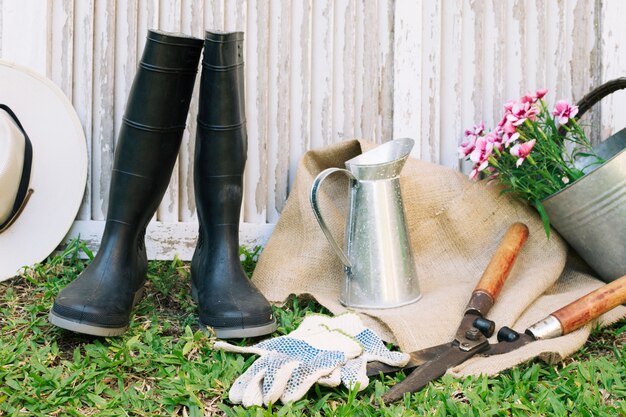
Sponsored article
If you’re an avid gardener looking to infuse some novelty and sustainability into your garden, our tips on repurposing household items can come to your aid. From converting furniture that was headed for the scrapyard into beautiful garden pieces, to turning kitchen waste into plant food and crafting your own garden tools, we provide you with ample inspiration to galvanize your green thumb. Let’s delve into the creative world of eco-friendly gardening!
Cultivating the art of upcycling furniture breathes new life into old, discarded pieces while embodying the principles of sustainable living. Instead of contributing to landfills, breathe a second wind into these items by reimagining them as elements of garden decoration. Chairs with worn-out seats can be transformed into unique planters, adding a touch of quirky charm to your garden.
An old wooden bench can be reconditioned and repurposed as an inviting seating area amidst blooming flora. Antique cupboards that have seen better days can be reassembled, varnished, and used as decorative pieces to create enchanted corners. Embracing sustainable living by reusing and repurposing old furniture for your garden not only creates an eco-friendly ambience but also adds an inventive flair to your outdoor space.
Getting creative with kitchen waste not only promotes an eco-friendly gardening ethos but also reduces the volume of organic waste that ends up in landfills. The beauty of composting kitchen waste lies in its simplicity – all you require is a compost heap or bin to get started. Common kitchen scraps like vegetable peelings, coffee grounds, eggshells, and tea bags, when composted correctly, can yield nutrient-dense compost that helps your garden thrive.
Beyond its benefits for your garden plants, composting kitchen waste is a fantastic way to contribute to a more sustainable environment. It’s a small step towards a larger goal – reducing our carbon footprint and maintaining the health of our planet. Whether you’re a novice gardener or an experienced horticulturist, the integration of composting practices into your gardening routine can foster healthier plant growth and contribute to more productive, fruitful gardens.
Have you considered transforming once-thrown materials into resourceful DIY garden tools? Flex your creativity and sustainability muscles by discovering a lucrative way of waste repurpose right in your garden. Take an old, metal spoon, for instance. With a touch of artistry and utility, these seemingly insignificant items can turn into practical markers for your freshly sown seeds. This way, each of your herbs and veggies gets a distinctive mark, and you never lose track of what’s growing where.
Another brilliant idea is to convert old plastic containers into unique, and extremely functional, portable planters. Just drill a few holes for drainage, add soil, and your plants will thrive in their new homes. These repurposed DIY garden tools not only reduce waste but also save substantial money in the process. Making this a practice cultivates a sustainable, budget-friendly gardening habit. So don’t discard, repurpose for your verdant space!